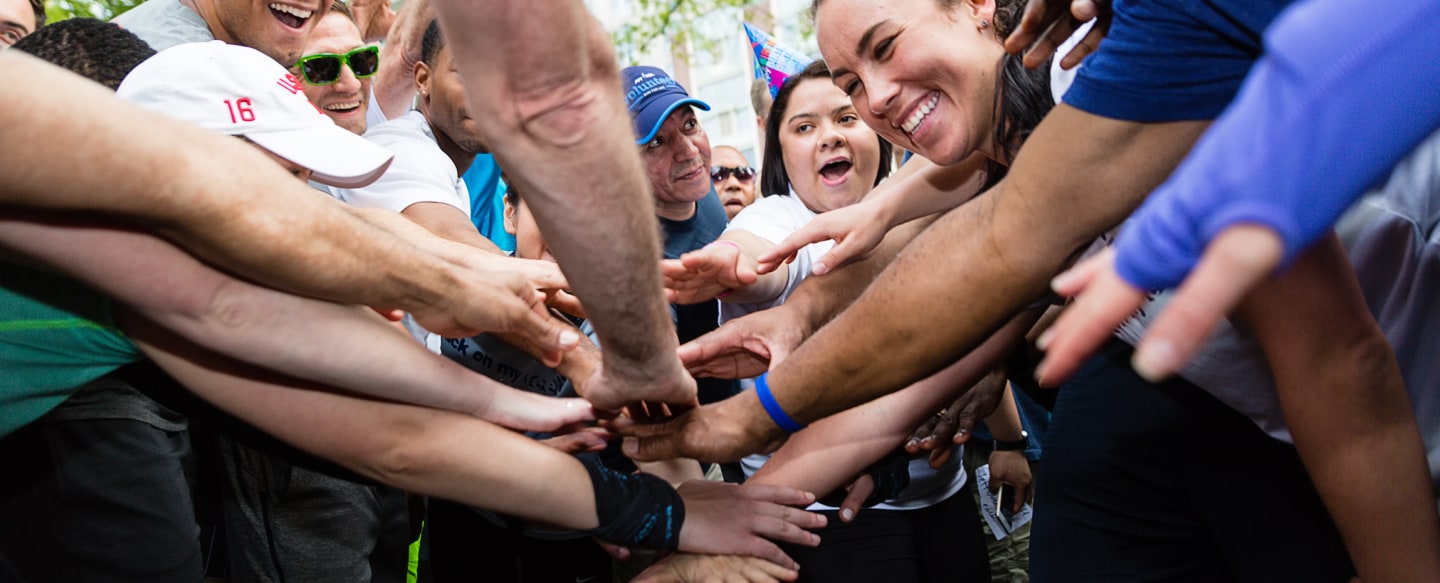Before he was kicked off the stage at Columbia University, comedian Nimesh Patel joked about his experiences in a diverse part of New York City. Patel, a former writer for Saturday Night Live, had been hired by the university’s Asian American Alliance (AAA) for a December 2018 event that “seeks to break through the stereotypes and challenges that our community faces.” Patel joked about a gay black neighbor. Being gay can’t be a choice, Patel said, because “no one looks in the mirror and thinks, this black thing is too easy; let me just add another thing to it.”
The AAA interrupted his performance. They were unhappy that his joke addressed race and sexual orientation—even though the joke wasn’t racist or homophobic. When Patel noted that his remarks were not offensive, the organizers cut off his microphone.
Such conflicts are fueling a debate over comedy and free speech. In 2015, Jerry Seinfeld and Chris Rock said they would no longer play college campuses, complaining that students are too politically correct. In 2018, comedians, like Samantha Bee, were attacked by the right while others, like Roseanne Barr, were attacked by the left. As comedian Jeff Ross tweeted late last year: “Can someone from the comedy police please send me an acceptable list of topics we can joke about?”
And yet suppressing comedians is as old as knock-knock jokes. “You can go on YouTube and watch footage of old comedians, and inevitably, there’s a comment that says, ‘This was real comedy when you didn’t need to be dirty,’” says Kliph Nestoroff, author of The Comedians, a history of American comedy. “But a lot of these comedians were attacked for being dirty. Milton Berle, at the height of his fame, if you go back and read letters to the editors in newspapers or TV Guide, people are constantly objecting to his dirtiness. People said, ‘We’ve got to get this guy off the air.’”
There’s nothing funny about silencing comedians. From Richard Pryor to Amy Schumer, comedians are truth-tellers who not only make us laugh, but who frequently tackle taboo subjects (and not always tastefully). Yet by doing so, they launch often-difficult conversations on sensitive topics such as race and religion.
“When you silence someone you don’t agree with or find offensive, not only do you implement the tactic used by the people you disdain; you also do yourself the disservice of missing out on a potentially meaningful conversation,” Patel wrote in an op-ed for The New York Times. “You cannot affect change if you are not challenged.”
The Internet’s Impact
In 2018, Louis C.K. did a surprise set at the Comedy Cellar in New York City. It was his first show since he confessed to sexual misconduct and some attendees were uncomfortable. Owner Noam Dworman understood their concerns and created a policy allowing unhappy customers to leave during surprise performances (with the club paying their bill). But the set also generated online outrage from “the Twitter mob,” as Dworman calls it, and he worries about the effects of social media fury on comedians.
“I’ve seen some comedians panic after a single negative tweet,” says Dworman. “Major corporations see 30 ugly tweets and they buckle to something that few people actually care about.”
Some people have created fake Twitter accounts to attack comedians for a single joke, he says. And people don’t always think before they Tweet.
“In the old days, when people complained about Milton Berle, they would think about what they were going to say, write a letter, go to the post office, buy a stamp, put it in the mailbox, and then wait two weeks to see whether it got printed,” says Nesteroff. “But today you do it instantaneously, without a filter. If Twitter had existed in the early ‘50s, Milton Berle would have been canceled the first season.”
Patel, the comedian whose show abruptly ended at Columbia University, believes that how we consume information has affected our reactions. “It is much easier to be offended these days,” Patel wrote in his op-ed. “On social media and with a 24-hour news cycle, we are bombarded with noise all the time.” That constant noise makes it hard to absorb “what is really being said.”
Fear of the Twitter mob may also cause self-censorship. “I’m seeing it even at the famous Comedian Table in the back of our restaurant where no-holds barred conversations are a tradition,” says Dworman. “For the first time, I sense a layer of caution before people share their views. They’re policing their own language in a way that’s new.”
Conflicts on Campus
When comedians perform on college campuses, they typically sign contracts promising that they won’t offend audiences. Such contracts are not limited to the United States. In late 2018, comedian Konstantin Kisin made headlines when he refused to sign a University of London “Behavioural Agreement Form,” which included a no-tolerance policy “with regards to racism, sexism, classism, ageism, ableism, homophobia, biphobia, transphobia, xenophobia, Islamophobia or anti-religion or anti-atheism.”
College contracts are nothing new, says Nesteroff. It’s how all college and corporate gigs work, and comedians need to decide if they can handle those limitations. When Nesteroff worked as a standup, for example, his act was ill-suited to corporate gigs.
“I didn’t have a family-friendly act, and a lot of corporate acts demand that. If you do something that isn’t family-friendly, you’re not going to get paid,” he says. “You could say that’s censorship, but it’s also a contract violation… So people complain about college contracts, but if you’re doing The Tonight Show and the booker says, ‘I need you to take out this word, this word, and this word, and we can’t have you do the abortion routine,’ inevitably the comedian will say, ‘No problem.’ They’ll censor themselves because they want to be on TV.”
When comedians tone down their acts on campuses, the real losers are students, says Nico Perrino, director of communications for the Foundation for Individual Rights in Education (FIRE) and creative consultant for the documentary Can We Take a Joke?.
“When we are sensitive to a particular topic, good comedy can help us put our guard down and re-examine our sacred cows,” he says.
So are today’s young people really more sensitive than previous generations? Dworman doesn’t think so. “I study the faces of our audience very carefully when a comedian is doing a potentially ‘problematic’ joke, and I don’t see young people being particularly sensitive,” he says.
When Hannibal Buress’s act was cut short at Loyola University Chicago in 2018, many students objected. Buress started the show by sharing the Catholic university’s restrictions regarding content on race, rape, sexual assault, sexual orientation and gender, and drugs. He then made a joke about the sexual abuse of children in the Catholic Church—which is when event organizers cut off his microphone. One student told The Chicago Tribune: “I just thought it was kind of ridiculous how Loyola encourages us to think in a critical manner, that critiques institutions, and then they’re an institution that can’t handle the critique.”
Sara Schaefer gained insights on college audiences by performing at 50 campuses in 50 states in 2018. Initially, she thought she’d need to modify her material, but she never had to water down jokes, she wrote in a piece for Vulture.com. In his op-ed, Patel noted that many students sent him notes and apologies. Three students apologized in person at his next show. “They helped me see that when older people call students today oversensitive, we do the same thing that we accuse the college students of doing—jumping to a predetermined conclusion based on the action of a small group.”
The Real Threat Isn’t Political Correctness
As a comedy historian, Nesteroff thinks political correctness complaints are overstated.
“Comedians were much more heavily censored in the first 70 years of the 20th century than in the last 40 or 50 years,” he says. “I don’t know of any comedians in North America who are serving prison time for the content of their act.” When comedians face criticism, it’s usually related to offstage behavior. Louis C.K.’s comedy may be insensitive—in December 2018 he joked about the Parkland shooting survivors—but his controversies stem from his notorious personal conduct.
For Nesteroff, the biggest threats to comedy come from governments and corporations. He points to Netflix, which in January 2019 complied with Saudi Arabia’s legal request to remove an episode of Hasan Minhaj’s show Patriot Act within the country, since Minhaj criticized the Saudi crown prince. “That could easily happen here, and I think there are inklings of that,” says Nesteroff. In December 2018, President Trump questioned whether the content of Saturday Night Live should be “tested in courts.”
And yet despite those threats, comics will continue to push, prod, and point out absurdities. A comedian’s duty is to find the line and deliberately cross it, George Carlin once said. When that happens—when punchlines make us think—everyone benefits.
“I think everybody should always be allowed to cross the lines,” says Dworman. “We need to give people a margin of error to (God forbid) be wrong, make mistakes, misspeak. If we don’t give people a margin of error, if we ruin people for saying the wrong thing, our most important thinkers will just shut up.”











